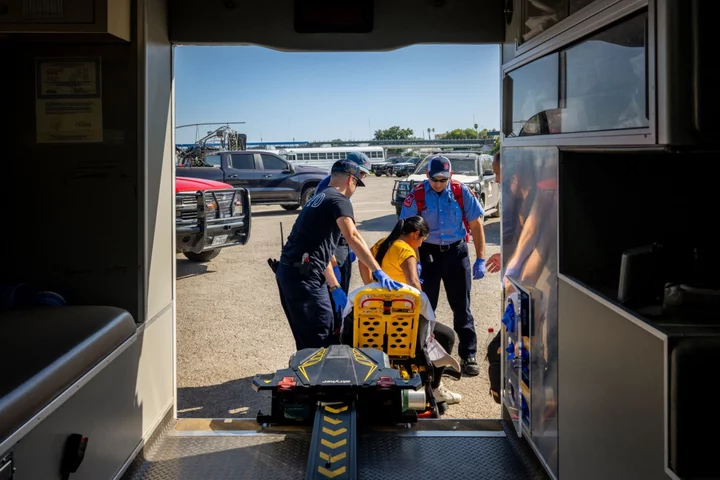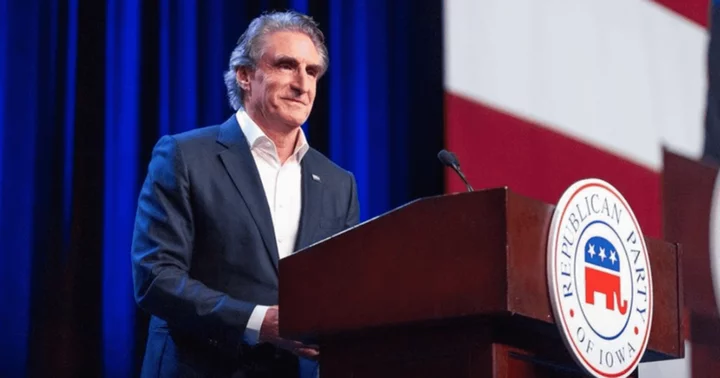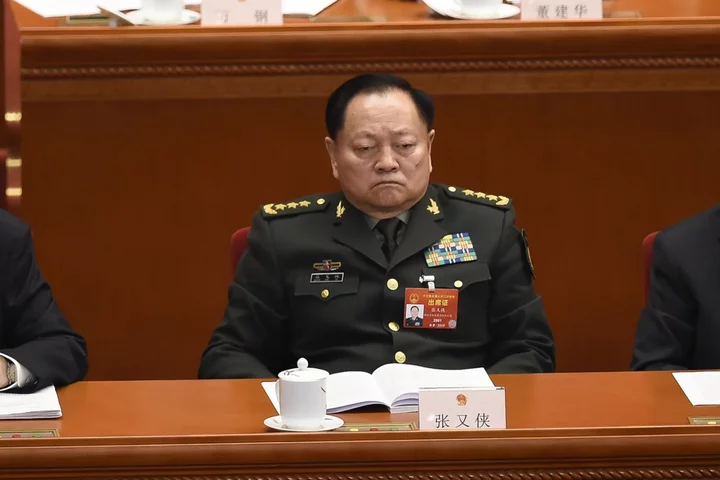
Le'Veon Bell believes he can take down Jake and Logan Paul: ‘I can beat both of 'em’
During a podcast, Le'Veon Bell stated that he can beat both Logan and Jake Paul in a boxing match
2023-09-26 16:06

Iceland PM to take part in first women’s strike in almost 50 years: ‘Women’s Day Off’
Tens of thousands of women in Iceland are due to take part in the country’s first day-long strike in almost 50 years to raise awareness of gender-based violence and the gender pay gap. Katrin Jakobsdottir, Iceland’s prime minister, will participate in the protest which will involve women and non-binary people stopping paid and unpaid labour on Tuesday. Teachers, nurses and fishing industry workers have said they will take part in the women’s strike which is the first day-long protest since 1975 when women also downed tools and stopped work. The original protest, dubbed “Women’s Day Off” or “Kvennafrí” in Icelandic language, brought the nation to a standstill due to women refusing to work, do childcare, or cook. Some 90 per cent of Icelandic women are estimated to have stopped work for the day - with schools shut down and flights cancelled due to a dearth of staff. While children were brought to work by their fathers due to a lack of childcare. The protest triggered far-reaching change in the country - with Iceland subsequently electing the first woman to be an elected president in the world and rolling out its first Gender Equality Act. BSRB, the country’s biggest federation of public worker unions, as well as 31 associations, are taking part in the strike, according to local publication Mbl.is. “First and foremost, I am showing solidarity with Icelandic women with this,” the country’s PM told the news outlet. The protest’s organisers want the strike to raise awareness of sexual violence and domestic abuse as well as the undervaluing of sectors where women are over-represented. Campaigners hope more people will take part in Tuesday’s protest than those who took part in the 1975 strike. The World Economic Forum recently declared Iceland as the world’s most gender-equal nation for the 14th year in a row. Read More ‘18 more months, baby. Then I’m in Iceland’: The group helping trans people to leave the US
2023-10-23 20:00

Pregnancy Health Risks Linked to Heat Waves as Temperatures Rise
Exposure to extremely hot weather raises pregnant women’s risk of severe health complications, researchers said in a study
2023-09-07 23:00

Olivia Dunne: How does SI Swim star deal with social media hate?
Olivia Dunne has learned to brush aside meaningless social media noise and wants to inspire young girls to follow their passion
2023-05-17 18:18

Newcastle Confirmed in New Apex Legends Season 13 Launch Trailer
Apex Legend's newest playable character, Newcastle, has been confirmed for Season 13.
1970-01-01 08:00

Touchdown pass gives Illinois a 48-45 overtime victory over Indiana
John Paddock threw a 21-yard touchdown pass to Isaiah Williams in overtime to give Illinois a 48-45 win Saturday over Indiana in a Big Ten game
2023-11-12 05:23

Klopp wins record 50th European tie but 'everyody will hate it'
After Jurgen Klopp became the first Liverpool manager to win 50 European games on Thursday night he insisted "everybody...
2023-09-22 04:49

Malaysia’s Good Vibes Festival seeking 2m in damages from The 1975
Malaysia’s Good Vibes Festival is seeking over $2 million in damages from the 1975, after frontman Matty Healy’s on-stage protest against the country’s anti-LGBTQ laws.
2023-08-12 15:00

Sequoia Splits Into Three Entities, Makes China Standalone Firm
Sequoia Capital, the venture capital powerhouse, is breaking up into three entities across the globe, splitting the Chinese
2023-06-06 18:34

What happened to Doug Burgum? North Dakota governor may not make it to the Republican Presidential debate
Doug Burgum suffered a high-grade tear of his Achilles tendon while playing a game of pick-up basketball
2023-08-24 02:57

ChatGPT: Can China overtake the US in the AI marathon?
Washington's efforts to limit China's access to crucial cutting-edge technology continue.
2023-05-24 05:18

China, Russia Use Security Forum to Show Off Ties Yet Again
China and Russia used a military forum in Beijing to publicly reinforce their bond, a move that defies
2023-10-30 18:03
You Might Like...

Peru’s Economy Contracts in May, Dashing Recovery Hopes

Jorge Soler's homer helps the Marlins rally for a 3-2 win over the Reds

Real Madrid transfer rumours: Mbappe approach begins; €60m player exit

Turkmenistan in Talks With US to Tackle Giant Methane Leaks

Football transfer rumours: Man Utd's 'high priority'; Liverpool 'unlikely' to sign Kone

Bayern Munich make clear plans over Joshua Kimmich transfer

New truce, new battles in Sudan as civilians remain trapped

Legendary Cleveland Browns running back Jim Brown dies at 87
